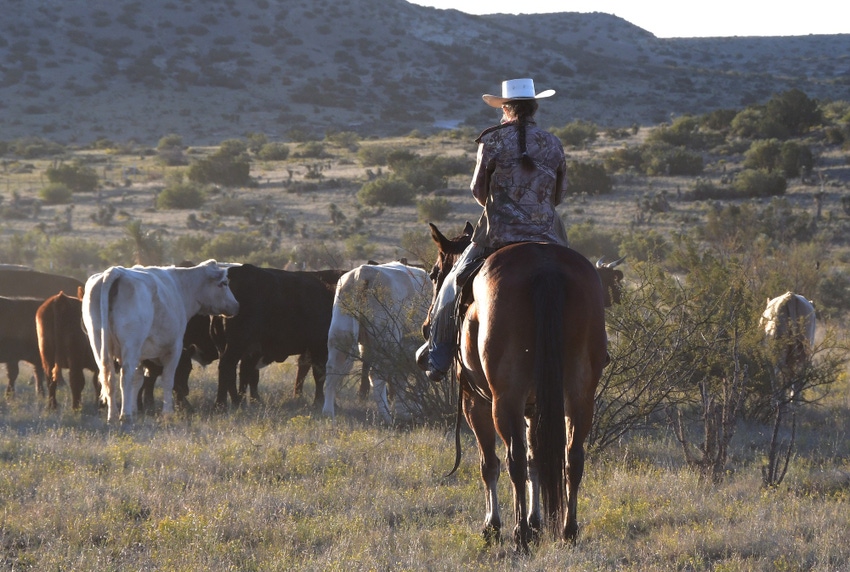Up to $5 million in funding will be provided through the partnership.
April 12, 2022

Burger King and Cargill announce a partnership with the National Fish and Wildlife Foundation (NFWF), the largest private conservation grant provider in the U.S., to support cattle ranchers committed to addressing climate change through regenerative agriculture practices in Colorado, Kansas, Nebraska, New Mexico, Oklahoma, and Texas. This five-year initiative with up to $5 million in funding, brings together two major beef brands dedicated to emissions reduction, reinforcing the important role beef and cattle play in helping the Great Plains thrive. The funding is expected to generate 1:1 matching contributions from NFWF, creating a total on-the-ground impact of up to $10 million.
Through this partnership, Burger King, Cargill and NFWF will bring financial and technical resources to ranching organizations in the Southern Great Plains to improve grassland management and reduce greenhouse gas emissions. The Southern Great Plains host a unique set of wildlife species that are specifically adapted to this grassland ecosystem, and many of these species are year-round residents that live on or migrate through ranching lands.
NFWF also awarded three grants made possible by Burger King and Cargill funding to ranchers in Kansas, New Mexico and Texas to support their efforts to plan and implement voluntary grassland management practices with consideration to the unique needs of their land.
"We, along with our research partner Working Lands Conservation, are thrilled by this amazing opportunity to support livestock producers in stewarding the Southern Great Plains," said Lesli Allison, Western Landowners Alliance executive director. "This project highlights the key role that ranchers and grazing animals play in maintaining grassland ecosystems, feeding our nation and sustaining the economic vitality of rural communities."
Rancher and project partner Bret Riley added, “Building good prairie chicken habitat builds good cow habitat. These are win-win management strategies that we are proud to work with agency and conservation partners on.”
With support from Burger King and Cargill, the sustainable grazing practices implemented by ranchers over the next five years will have far-reaching impact with the potential to sequester up to 360,000 metric tons of carbon dioxide equivalent (CO₂e) per year, the equivalent of removing 904 million miles driven or the energy to power 43,000 U.S. homes for one year.
“As one of the biggest buyers of beef in North America, partnering with Cargill and NFWF allows us to accelerate ambitious efforts to reduce greenhouse gas emissions in our beef supply chain and to make meaningful impacts important to our planet and Guests,” said Tom Curtis, president of Burger King. “Put simply — it’s the right thing for us to do. Beef can be a force for good, particularly when it comes to improved rangeland management as a mechanism for directly addressing climate change. We’re committed to creating a more resilient food system and collaborating as a team to advance noticeable change.”
Heather Tansey, vice president of Environmental Sustainability of Cargill, added, “It will take a multi-pronged approach to protect, regenerate and restore lands to mitigate climate impacts. As part of Cargill’s largest and most ambitious program on climate change, BeefUp Sustainability, we recognize that our farmers and ranchers across North America are already leading environmental stewardship practices and just need further incentives, tools and training to help scale these impactful practices.”
Cross-industry collaboration creates an opportunity for beef production to preserve and positively impact land and resources. Burger King, Cargill and NFWF are each committed to making beef production more sustainable and have already implemented similar sustainable agriculture programs across North America to optimize beef production that is healthy for customers, regenerative for land and profitable for farmers.
This Southern Great Plains initiative exemplifies the actions Burger King parent company Restaurant Brands International is taking to meet its Science Based Targets initiative approved goal to reduce Scope 3 emissions intensity by 50% per metric ton of food, as well as support achieving its overall goal of being net-zero emissions by 2050, compared to a 2019 baseline. Through projects like this and other actions, Restaurant Brands International expects to prevent an estimated 25.4 million metric tons of carbon dioxide equivalent (CO₂e) from being released into the atmosphere by 2030, as compared to a business as usual scenario. This is the equivalent of taking 5.5. million passenger cars off the road for an entire year.
You May Also Like

.png?width=300&auto=webp&quality=80&disable=upscale)
.png?width=300&auto=webp&quality=80&disable=upscale)
